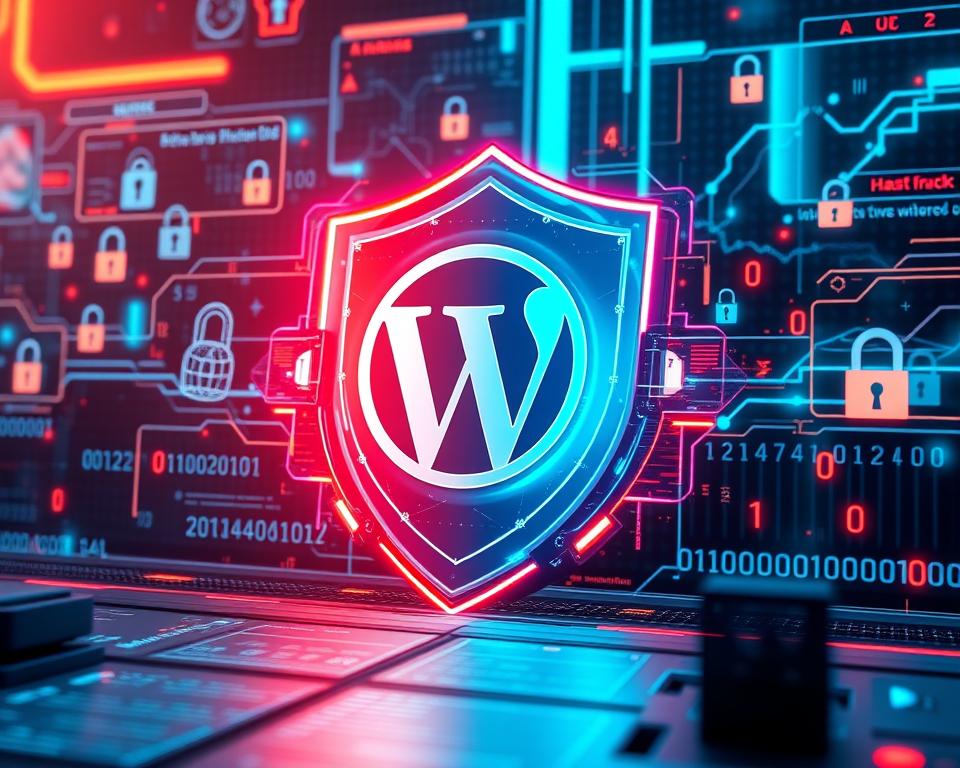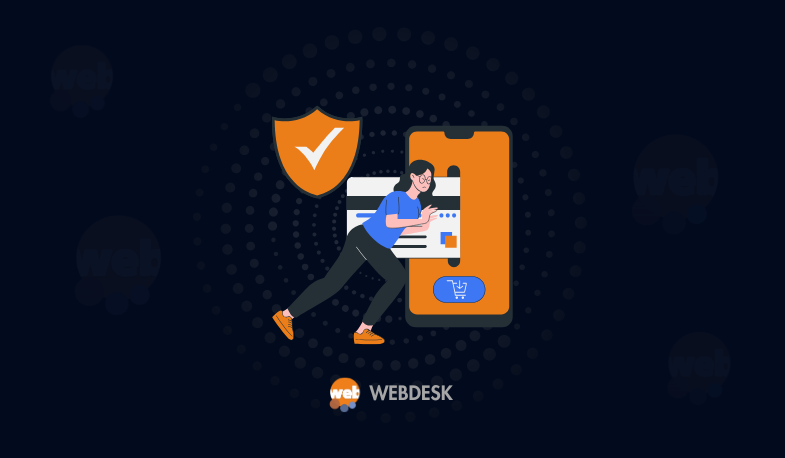WordPress
Add a strong layer of security to your WordPress website with these must-have plugins
WordPress security is crucial for protecting your website from cyber threats and attacks. By using reliable security plugins and best practices, you can safeguard your site against hackers and data breaches. Implementing strong passwords, regular updates, and security monitoring tools will keep your WordPress site safe and secure.
In today’s digital world, keeping your WordPress website safe is key. Cyber threats have grown more complex, making strong security a must. WordPress has many security plugins to help protect your site from harm.
Using these top WordPress security plugins can boost your site’s defense. This guide will show you why security is vital, the threats you face, and what to look for in the best security tools.
Strengthen Your WordPress Website Security with These Must-Have Plugins
Understanding the Importance of WordPress Website Security
WordPress powers millions of websites around the world. It’s key to know the vulnerabilities that can harm your site. These threats can hurt your business’s finances and reputation.
Common Security Threats to WordPress Sites
WordPress sites face many security risks. These include malware, brute-force attacks, and SQL injections. Hackers can use outdated plugins or themes to get into your site. They might steal data or control your website.
The Real Cost of Security Breaches
A security breach can cost a lot. You’ll face expenses for data recovery, legal fees, and lost business. It can also harm your brand’s reputation, making customers lose trust.
Why Default WordPress Security Isn’t Enough
WordPress has basic security features, but they’re not enough. To keep your site safe, you need a strong security plan. This includes advanced protection, regular checks, and quick action against threats.
Knowing how important WordPress security is can help you protect your site. You can use strong security solutions to keep your online presence safe from threats.
“A single security breach can cripple a business, both financially and reputationally. Protecting your WordPress website should be a top priority.”
Essential Features to Look for in Security Plugins
Choosing the right security plugin for your WordPress website is key. These plugins protect your site from threats like firewall protection, malware scanning, and two-factor authentication. Here are the must-have features in a WordPress security plugin:
- Real-time threat detection: It should promptly notify you, enabling prompt action. should alert you right away to help you act fast.
- Comprehensive malware scanning: Scan your site regularly for malware and viruses. Remove any threats found to keep your site safe.
- Advanced Login Security: Use strong login protection, like two-factor authentication. This stops unauthorized access and brute-force attacks.
- Firewall Protection: Set up strong firewall protection to block illicit traffic. It filters incoming requests and protects your site from cyber attacks.
- Automatic Updates and Patching: Make sure your WordPress, plugins, and themes are always updated. This fixes known vulnerabilities and keeps your site secure.
- Security Auditing and Reporting: Get detailed security reports and logs. They help you understand your site’s security and make smart choices.
By picking a WordPress security plugin with these features, you create a strong security system. It protects your website from many threats and keeps your online presence safe.
“Investing in a comprehensive WordPress security solution is a proactive step towards protecting your website and your business.”
Top WordPress Security Plugins for Complete Protection
Keeping your WordPress website safe is key in today’s online world. Luckily, many security plugins are out there to help. These tools, from free to premium, have features to protect your site from threats.
Free vs Premium Security Solutions
Free plugins like Wordfence and iThemes Security give strong protection. But, premium options like Sucuri offer more security and advanced features. Your choice depends on your website’s needs and how complex it is.
Installation and Setup Guidelines
Installing and setting up security plugins is usually easy. Most plugins have clear steps and simple interfaces. They help you set up your site for the best protection.
Performance Impact Considerations
It’s important to think about how security plugins might affect your site’s speed. Some can slow down your site. But choosing and setting up the right plugins can keep your site quick and smooth for visitors.
Using WordPress security plugins like Wordfence, Sucuri, and iThemes Security helps protect your site from many threats. This keeps your online presence safe and makes your visitors feel secure.
“Protecting your WordPress website should be a top priority, and these security plugins make it easy to do just that.”
Firewall Protection and How It Safeguards Your Site
A strong firewall is key to keeping your WordPress site safe. Web Application Firewalls (WAFs) are vital in stopping illicit traffic and blocking suspicious IP addresses. They also stop many attacks that could harm your site.
A WAF acts like a shield, watching and checking incoming traffic for threats. It blocks malicious actors by IP blocking, keeping your site safe and open for real users.
WAFs also use traffic monitoring to spot and stop suspicious actions. They block SQL injection, cross-site scripting (XSS), and other common WordPress vulnerabilities. This helps lower the chance of attacks on your WordPress website.
“A robust firewall is the cornerstone of any effective WordPress security strategy. It’s the first line of defense against a wide range of threats.”
When picking security plugins for your WordPress site, look for those with strong Web Application Firewall (WAF) features. These add extra protection, letting you relax and grow your online space.

- Analyze incoming traffic for suspicious activities
- Block IP addresses associated with malicious actors
- Prevent common WordPress vulnerabilities like SQL injection and XSS
- Enhance overall website security and stability
Malware Scanning and Removal Tools
Keeping your WordPress website safe from threats is key. Malware scanning and removal tools are vital for a secure online space. They boost your site’s virus detection, file monitoring, and malware cleanup.
Real-time Scanning Features
Real-time malware scanning is essential. It watches your WordPress site for any illicit activity or infected files. These tools spot and act on viruses fast, keeping your site safe.
Automated Malware Removal Options
When malware hits, quick removal is crucial. Top WordPress security plugins offer automated removal. They find and remove malicious code fast, saving you time and keeping your site safe.
Quarantine Procedures
Some plugins also have quarantine features. They isolate infected files, stopping malware spread. This lets you check and fix issues without risking your whole site.
Adding these tools to your WordPress security plan is vital. They help keep your site clean and safe. With these features, you can better protect your digital assets and keep your visitors safe.
Login Security and Two-Factor Authentication
Securing your WordPress website starts with protecting the login process. Brute force attacks, where hackers guess your login details, can harm your site. That’s why strong login security is key. With top-notch WordPress security plugins, you can make your login pages safer and stop unauthorized access to your admin area.
One of the best security tools is two-factor authentication. This adds an extra step by asking for a unique code sent to your phone or generated by an app. Even if hackers guess your password, they still need the second code to get in. This greatly lowers the chance of a successful hack.
- Brute force protection to shield against credential-guessing attacks
- Implementation of strong passwords to enhance login security
- Multi-factor authentication for an extra layer of login verification
Adding these login security features to your WordPress site protects your admin access. It also keeps intruders away. Taking these steps is vital for keeping your online space safe and secure.
“Securing your WordPress login is the first line of defense against cyber threats. Leveraging powerful security plugins can help you erect a formidable barrier against unauthorized access.”
Backup Solutions and Recovery Options
In today’s digital world, keeping your WordPress website safe is crucial. Backup solutions and recovery options help a lot. They protect your site from threats and help you get it back quickly if something goes wrong.
Automated Backup Schedules
Automating backups is a big step in protecting your site. Look for WordPress security plugins that make scheduling backups easy. This way, your site’s data is saved regularly, ready for quick recovery if needed.
Cloud Storage Integration
Using cloud storage with your backups adds extra security. Services like Google Drive, Dropbox, or Amazon S3 keep your data safe. This way, you can access your backups from anywhere, even if your local storage is lost.
Quick Recovery Procedures
When disaster hits, swift action is key. Choose WordPress security plugins with quick recovery tools. They let you restore your site from a backup in just a few clicks, saving you time and keeping your site running smoothly.
With strong backup solutions and rapid recovery options, you can protect your WordPress site. This ensures your site stays safe and available, even when unexpected problems arise.
Security Monitoring and Activity Logging
Keeping your WordPress website safe is more than just using security plugins. You need to watch your site closely and track any odd behavior. WordPress security plugins offer excellent tools for this.
These tools send you alerts right away, so you know what’s happening on your site. They help you spot and stop any malicious attempts to get into your site. This way, you can catch security problems early and fix them fast.
Also, these plugins give you detailed security reports. These reports tell you about login attempts, changes to your site, and more. With this info, you can make your site even safer.
“Proactive security monitoring and activity logging are essential for maintaining a secure WordPress website in today’s constantly evolving threat landscape.”
Using your WordPress security plugins’ monitoring and logging features helps you stay ahead of threats. You’ll feel more secure, letting you focus on growing your online space.

Don’t just rely on plugins for security. Actively watch for and deal with threats. With your WordPress security tools, you can keep your site safe and protect your online assets.
SSL Certificate Integration and HTTPS Implementation
Securing your WordPress website with an SSL (Secure Sockets Layer) certificate is key. It protects your online data and ensures a safe browsing experience for users. SSL certificates encrypt the connection between your site and visitors’ browsers. This keeps sensitive information like login details and payment info safe from cyber threats.
Types of SSL Certificates
There are several SSL certificate types to choose from. Each has its own benefits and features. Domain-validated (DV) SSL offers basic encryption. Organization-validated (OV) and extended validation (EV) SSL provide more verification and trust signals for visitors.
Installation Process
Adding an SSL certificate to your WordPress site is simple with a reliable security plugin. These plugins make the SSL setup simple. They guide you through the steps to enable encrypted connections and serve your site over HTTPS. A useful plugin can make the entire process of encrypted connections, data protection, and secure browsing easy.
FAQ
What are the common security threats facing WordPress websites?
WordPress sites face threats like malware, brute-force attacks, SQL injections, and plugin vulnerabilities. These can cause data breaches, website damage, and even full site takeovers.
Why is default WordPress security not enough for comprehensive protection?
WordPress’s default security can’t keep up with new cyber threats. Sites need extra security like firewalls, malware scans, and two-factor authentication to stay safe.
What are the key features to look for in a WordPress security plugin?
Good security plugins have real-time threat detection, login protection, and malware scanning. They also offer automated cleanup and two-factor authentication. These features create a strong security layer for your site.
How do free and premium WordPress security plugins differ?
Free plugins offer basic security, while premium ones have advanced features like firewalls and malware scans. The choice depends on your site’s security needs and budget.
How do Web Application Firewalls (WAFs) protect WordPress websites?
WAFs, part of security plugins, watch for and block illicit traffic. They stop attacks like SQL injections and XSS, keeping your site safe from threats.
What are the benefits of automated malware scanning and removal tools in WordPress security plugins?
Plugins with real-time scanning and removal quickly find and remove malware. This keeps your site safe and protects visitors from infected content.
How do two-factor authentication and login security features enhance WordPress security?
Two-factor authentication adds a second check for admin logins, like a code to your phone. It stops brute-force attacks and keeps your site secure.
What role do backup and recovery options play in WordPress security?
Backup and recovery tools in plugins protect your data and ensure your site can quickly recover from breaches. They help restore your site to a safe state.
How can security monitoring and activity logging features benefit WordPress website owners?
Monitoring and logging features track user actions and alert you to threats. They help you stay on top of your site’s security and take action to protect it.
What are the benefits of integrating SSL certificates and enabling HTTPS on a WordPress website?
SSL certificates and HTTPS create a secure connection between your site and visitors. They protect sensitive data from hackers, making your site more secure.


